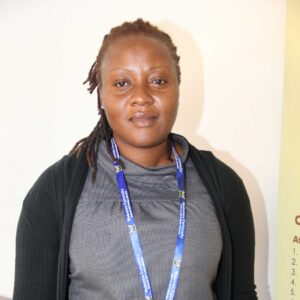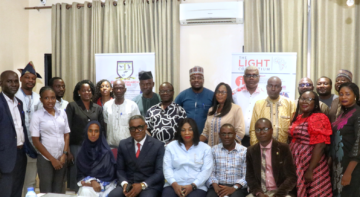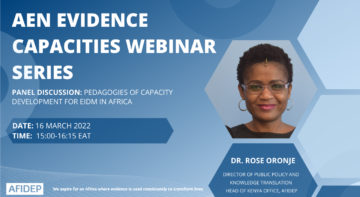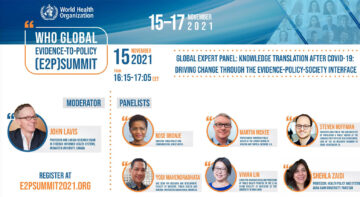Blogs

Advances in the importance of evidence-informed decision-making (EIDM) for better health policies, programmes and changes in policy engagement strategies such as using policy briefs, issue briefs for emerging researchers (PhD and postdoctoral students) requires a reflection on the role, personnel and processes involved thereof at the national context. As a PhD student currently working on a policy brief and trying to get technical and financial support to publish a handbook or manual for adolescents living with HIV (ALHIV), was a critical goal for the development of reference material for Teen club clinics in Malawi. The projects are part of giving back to the adolescents’ programme under the Lighthouse Trust. The adolescent clinic team members, health workers, programme managers/coordinators, executive officers and directors led the groundwork for the ‘Manual/Handbook/ Curriculum manual for ALHIV’. This reflective piece highlights components, priorities, complexities, and real-life experiences that warrant emerging researchers and policy actors and stakeholders to consider when engaging in policy processes and practice.
As is the case in most countries, preparing for policy or issue briefs has not had the same attention paid to it in the research and academia spaces. Most doctoral and postdoctoral students are less skilled in accessing resources, assembling partners, researchers, a writing network or thematic working groups. The need for financial resources, effort, time requirements, document reviews, including the iterative process of drafting and reviewing the manual, remain contentious. This reality had significant implications for preparing and publishing a manual for me as an emerging researcher and broadly for early career researchers elsewhere.
In January 2021, I took up a mentorship programme with AFIDEP under the Enhance DELTAS project funded by Wellcome Trust to learn, among other things, 1) to understand the complexities of the policymaking processes; 2) develop a policy engagement strategy; 3) summarise research into policy briefs and other communication products for a non-academic audience. In addition, I had a goal to get technical and financial support to publish the policy brief and handbook for adolescents living with HIV (ALHIV). I had sought financial resources in the previous year, with little luck as most renowned organisation turned me down, when I presented the idea that I was a PhD student. I tried to reach out to stakeholders working with young people and not to assume the role of an expert. There are doubts about raising requests for technical or financial support as a PhD student, as most people believe it is personal gain. The risks of over-simplification and dramatisation should not be ignored.
To address the above challenges, my mentor and a few key stakeholders who were part of my network helped me re-strategise and involved personnel from the Ministry of Health and other non-governmental organisations (NGOs). Initially, I had not included key stakeholders under the different governmental ministries that work on youth development due to complexities surrounding uptake of research recommendations, policy dialogues and power dynamics. As I began to reach out to key persons in different ministries, NGOs and sharing the worksheets that guided the policy brief and the need for the adolescent’s manual, I realised the intricacies needed in moving from setting the agenda for the two goals and the implementation processes involved thereof.
A taskforce was set up to facilitate meetings, writing sessions and agendas. A combination of communication platforms: sending an email, following up with a phone call, and a WhatsApp message, including zoom meetings, helped strengthen our writers, researchers, and reviewers’ taskforce. Three months into the mentorship, I became a coordinator for more than twenty individuals who had the affinity to publish an adolescents’ manual as reference material at the national level. This team continues to hold monthly meetings and has widened our skills, technical support and expert base. Reaching out to different stakeholders and applying a cross-sectoral approach in the programme allowed productivity as a reviewed draft manual is in place. The mentorship platform allowed a creative process that produces new kinds of cross-sectoral support, relationships, and unique spaces for knowledge co-creation.
This journey continues as the reviewers have suggested experts (in nutrition, herbal medicine, gender-based violence) to be incorporated to look at a few chapters in the manual in detail. Further, we need to put together an issue brief to be sent to the Ministry of Health technical working groups as part of agenda-setting for another rigorous, meditated and negotiated interactive process. We are yet to get funding for the publication of the manual. However, we hope when we reach out to other NGO’s working on teen club clinics around the country, we will stabilise our writers’, reviewers, task force working environment and enhance our chances for buy-in from the relevant ministries, thematic working groups, and bilateral partnership support.
 Dr Blessings N. Kaunda holds a Master of Science degree in Medical Anthropology from the University of Amsterdam-The Netherlands and a Bachelor’s Degree in Social Sciences-Sociology from The University of Malawi, Chancellor College. Blessings is a Research Scientist at the University of Malawi, College of Medicine, Malawi. Dr Kaunda was a fellow under the Enhance DELTAS programme and this blog was written as part of the ENHD 101 cohort 1 training programme.
Dr Blessings N. Kaunda holds a Master of Science degree in Medical Anthropology from the University of Amsterdam-The Netherlands and a Bachelor’s Degree in Social Sciences-Sociology from The University of Malawi, Chancellor College. Blessings is a Research Scientist at the University of Malawi, College of Medicine, Malawi. Dr Kaunda was a fellow under the Enhance DELTAS programme and this blog was written as part of the ENHD 101 cohort 1 training programme.
Related Posts





